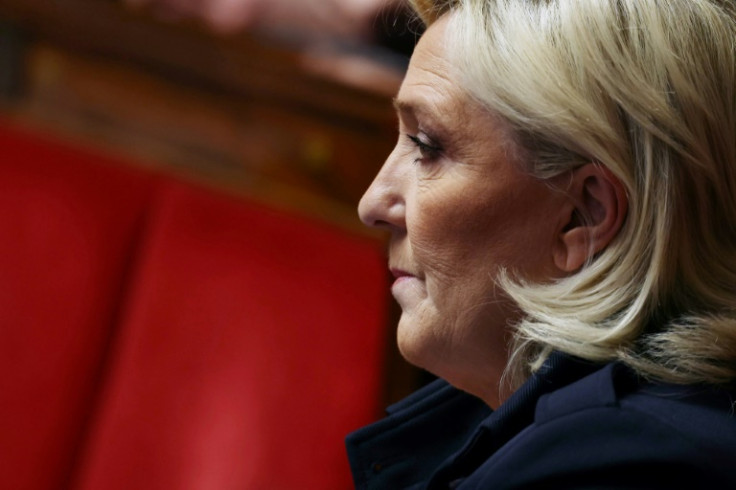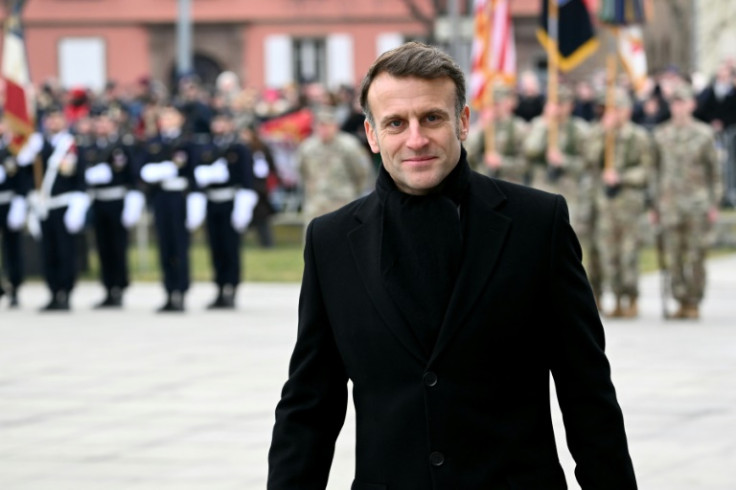French PM Moves To Force Budget Through Divided Parliament

Prime Minister Francois Bayrou on Monday moved to force through France's budget without a vote but looked certain to keep his job -- for now -- thanks to support from the Socialists in the bitterly divided parliament.
Bayrou, a veteran centrist named by President Emmanuel Macron in December to end months of political crisis following last summer's inconclusive legislative elections, is nowhere near having a parliamentary majority.
Bayrou rammed through the budget legislation on Monday using article 49.3 of the constitution, which allows the government to pass laws without a vote. The step immediately prompted a no-confidence motion from the left in the divided parliament.
But even if the far-right National Rally (RN) party decides to back the vote this week, Bayrou appears certain to keep his job for now, after the Socialist Party decided against backing the motion, giving the prime minister a much-needed boost.
"No country can live without a budget," Bayrou told the National Assembly lower house.
"We have spared no effort to break this deadlock", he added, thanking his ministers.
The government is under pressure from the European Commission to bring the country's sprawling deficits and growing debt under control.
A sustainable budget plan for this year is the priority for Bayrou, after the austerity budget plan of his predecessor, Michel Barnier, was jettisoned along with his government in December.
The adoption of the budget will make it possible to limit the deficit to 5.4 percent of GDP, Bayrou said, still one of the widest in the eurozone.
On Monday, he resorted to the tactic twice, to force through the budget as well as the social security budget, and may need to do this again later this week.
The use of article 49.3, while convenient for a minority government, means the opposition has the right to put forward a no-confidence motion to bring the prime minister and his government down.
In December, the far-right National Rally party teamed up with a left-wing bloc to topple Barnier's government.
The hard-left France Unbowed (LFI) on Monday swiftly called for a similar vote towards toppling Bayrou's government, tabling a motion of censure.
The motion was due to be put to the vote on Wednesday. The RN said it would make its position clear the same day.
Mujtaba Rahman, Europe director at risk analysis firm Eurasia Group, said that Bayrou looked likely to survive the vote and France would have the budget, "a month late."
"Is there light in the tunnel of France's budgetary and political crisis? Yes, probably," he said on X.
The adoption of the budget and survival of Bayrou's government would be a huge relief for Macron.
New legislative elections cannot take place until at least one year after the previous polls, so the toppling of Bayrou's government would plunge France into uncharted political waters.
Bayrou is Macron's sixth prime minister since taking office in 2017. The president has faced calls to step down but has repeatedly insisted he will serve out his term in full.
The Socialist lawmakers said in a statement that despite the concessions the legislation remained "a right-wing budget".
But they also pointed to a "spirit of responsibility" and "the interests of the country" as they explained their decision to back Bayrou "at a time when France is waiting to have a budget."
Labour Minister Catherine Vautrin defended "the first step" towards getting France's finances under control, estimating that the social security deficit will be "in excess of 22 billion euros" in 2025.
Frederic Valletoux, head of the social affairs committee, said: "Never in 15 years have the social security accounts seen such a high level of deficit, with the exception of 2020, the peak year of the pandemic."
The prime minister managed to convince the Socialists not to back a no-confidence motion against him earlier this year in a major victory that heralded the end of the New Popular Front (NFP), a broad left-wing alliance that had endured since the election campaign.
But the Socialists broke off talks with Bayrou's administration last week after he referred to migrants "flooding" France, borrowing from terminology previously used by the far right.
In a symbolic move, the party leadership decided Monday to table a separate no-confidence motion after Bayrou's "flooding" comments, according to party sources.
The move was not expected to be supported by the far right or centre right and therefore will not help topple Bayrou's government, party sources said.


© Copyright AFP 2025. All rights reserved.





















